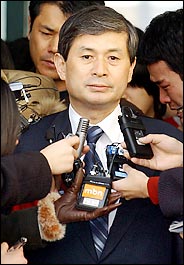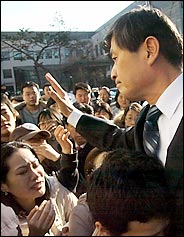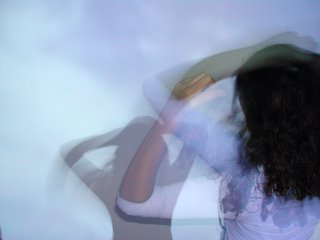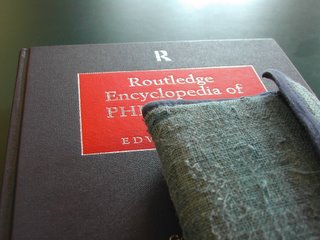
The New York Times, on its Saturday issue, reads as follows, quoting the dean of research affairs at the Seoul National University:
“We determined that this is a grave misconduct that damages the foundations of science.” [from “South Korean Scientist Resigns Over Stem Cell Research”, A6]
Since then, or perhaps before, the word has been on the market: also scientists can lie! What a surprise, I say. As if this was really news. Two things call for my attention from this article:
1)that scientists and science lovers are really surprised about this
2)the language used to denounce the crime, the alleged ruthless act against science.
Among the thousand different things that have come up thanks to Dr. Hwang (the criminal) there are some to pay attention to. First, we are able to see, almost on widescreen, how science depends on politics, economy and (as it is human) fame. Second, we are also able to how science really works, and so we can stop having fancy dreams about scientists belonging to that special kind of human beings that are somehow able to see reality, to feel reality, to tell reality.
Our first issue allows us to explain many things. We can tell why Dr. Hwang turned out to be the most famous scientist in the world nowadays; although perhaps he is now, as all beaten heroes, the most infamous one. Furthermore, we can also tell why Biology, DNA research, and Stem Cell research have nowadays the power and fame that Physics used to have a hundred years ago. One reason: the relevance to power, politics and economy. A hundred years ago nothing could have been of more help than nuclear power. A hundred years ago no one could have been more famous than a nuclear physicist. Nowadays, everyone has nuclear power. Nuclear physicists have come to play a secondary roll, as opposed to Stem Cell researchers; let them be biologists, veterinarians, and what not.
If you ask why, you may have the same reason: if there is something in which every government in the world is interested, nowadays, that is stem cell research. Merely one year ago, on December 15, 2004, the very same newspaper published an article by William Safire the title of which offers the answer: “California’s Stem Cell Gold Rush” Of course, Safire intends to draw an analogy; of course, this gold rush is all over the world. California is everywhere, to say it boldly. The world is looking for the next Bohr and Openheimer. The world thought it had its next Einstein, the next spokesman in a word, with Dr. Hwang. But not even that. Dr. Hwang couldn’t keep his tricks below the hat (as everyone else does) and the rest of the world used him, mercilessly, to pay for their own sins. Shame on those who see their own work reflected on the newspaper and still dare to complaint. May the world have pity on Dr. Hwang, as one of those nice guys from history used to say: that who is free of sin, may throw the first stone.
The denunciation, turning to our second point, could not be more pathetic. “We determined” says the chief of the affairs, “that this hurts and hurts badly”. The beauty of this statement comes from its double message. It is incredibly arrogant, for it assumes that it is up to her and her staff to determine what the foundations of science are or might be. If science is supposed to offer some knowledge of the world, and not just mere invention, then its foundation cannot depend on what some committee determines.
And this takes us directly to the second more amazing claim of her statement: it might as well be that science does not offer knowledge of the world, at least not in the passive, absolutely objective way we’ve been told it does. It might be that, as the relevant chair of these affairs claims, it is up to us to determine what the foundations of science are (if there are some at all). It might be (why not?) that science is more like poetry and less like science than we thought. It might be (why not?) that science is more like proving an invented hypothesis, than discovering the essence of the world. I think this is the correct way to view things, among other (metaphysical) reasons that I won’t dare to explore here, this interpretation makes the chair’s claims less arrogant and more truthful: the foundations of science, ladies and gentlemen, are up for grabs. It is up to “scientists” and their “scientific behavior” to settle the battle. At the end, as always for all endings, the history will be written by the victor (i.e. the most powerful one).
This is not all. If this is true, then it should be surprising that scientists are so surprised. It is understandable that we, the lame ones, may be surprised; but why should a scientist, a human being that who knows that the foundations are up for grabs, be surprised by what we call “news”? Why is the chair of affairs so surprised that vanity, power, money and ambition may distort, a little bit here and a little bit there, the results of some research? After all, it is up to us to determine what science is? Isn’t it? At least until a few months ago Dr. Hwang was the world’s most promising hero, was he not doing science then? Only one kind of thing in this whole Universe can rise and fall, from the top of the mountain to the world’s most disgraced pothole, and that is the human kind. Only someone that naively, and falsely, believes that scientists stop being humans (i.e. being conceited and ambitious) while they do science, can be justly surprised.

It was up to Nietzsche to declare the official demise of God a few years ago. This call can only be made once; we should open up our ears and understand.
We should stop looking for heroes, and stop buying them. For the ones that profit from them (e.g. governments, pharmaceutics, oil companies, aristocratic nobel prize committees, and what not) won’t stop creating them. Someone should stop complaining about Dr. Hwang and start asking questions about his boss, his real boss, the one who owns his name, his papers and his so well crafted labor. Those are the ones to be blamed. Is this news?
We should stop looking for minigods and accept we are all humans; as bad as mother Theresa (she was really evil, believe me), as good and trustworthy as Dr. Hwang (take a look at how many students cry for his departure, as many as the beaten children of mother Theresa). Is this news?
We should stop thinking that scientists are angels, and science the panacea. And that, up there, is not news.





